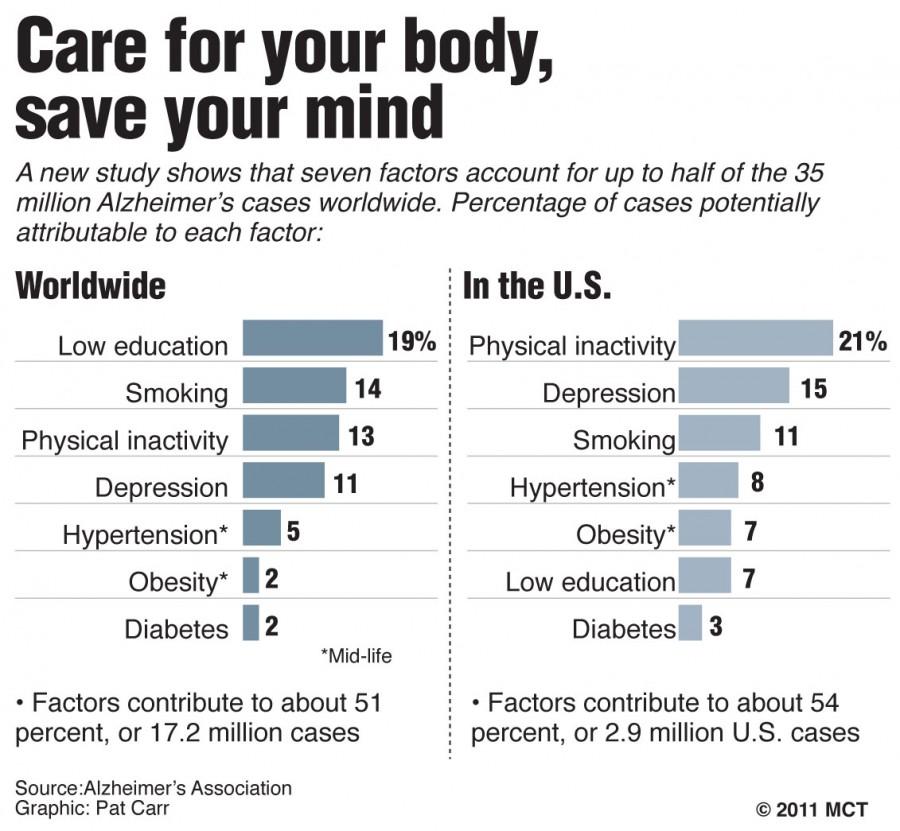Alzheimer’s: Glimmer of hope for a hopeless disease
A recent pilot study involving 10 patients afflicted by Alzheimer’s, facilitated by Dr. Dale Bredesen, is offering hope for those diagnosed with this crippling disease. Dr. Bredesen is director of the Mary S. Easton Center for Alzheimer’s Disease Research at UCLA. The results, published in the journal Aging, suggest that a comprehensive approach to treating the myriad of contributing factors to Alzheimer’s may help to reverse their symptoms.
In this study, 9 out of the 10 patients who were in various stages of Dementia /Alzheimer’s, were able to successfully reverse the disease’s early progression, after they participated in a program of optimizing Vitamin D levels in the blood and improving digestive and intestinal health. Supplements were also used to help reconnect broken tissues in the brain. A few months after participating in this rigorous program, the patients realized that their cognition had improved.
Peter, a medical professional, first found out at age 58 that he was slowly losing his ability to recognize faces or remember numbers. He suffered from progressive memory loss for 11 years before he became involved in the program. According to the study, he eliminated simple carbohydrates and processed foods, took probiotics and coconut oil, began a rigorous exercise program, and tried to get at least eight hours of sleep each night. Peter’s acuteness was soon restored.
Gee, 49, felt that her memory and cognition were noticeably declining. As her memory lapses mounted, Gee was tested, found that she was suffering from early onset of Alzheimer’s disease, and became involved in this pilot program. Gee improved her diet by cutting out processed foods and added fish and supplements to her daily regimen. She also began meditating twice daily and slept about eight hours each night. Within a few months of beginning the program, Gee experienced a dramatic cognitive turnaround.
The patients in this study underwent a comprehensive level of testing and found that each one was suffering from 10 to 24 Alzheimer related problems that needed to be addressed. These included 36 potential deficiencies, imbalances, and sources of inflammation.
“Each one of these things contributes a small piece of the puzzle,” said Dr. Bredesen to CNN. “Some people have a big hole in, say, exercise, and maybe a smaller hole in another area.”
The prevailing treatment programs for Alzheimer’s, which is caused by many factors, tend to address only a few of these problems.
Senior Ashley Yangouyian understands the difficulty of having a family member struggling with Alzheimer’s disease.
“My great aunt was diagnosed with Alzheimer’s many years ago and it’s hard on our entire family,” said Yangouyian. “We really worry about her.”
Yangouyian, who visits her great aunt often, said that a cure would have an enormous impact on her great aunt and her entire family.
“Wherever they are in their research, I hope they reach a major breakthrough,” she said. “The possibility of a cure gives me so much hope.”
One sound element of Dr. Bredesen’s study is its focus on addressing multiple risk factors, commented James Hendrix, director of Global Science Initiatives at the Alzheimer’s Association. According to a two-year, 1,200-person clinical trial conducted in Finland and presented at the Alzheimer’s Association International Conference, cognition performance improved among study participants that engaged in healthy nutrition, physical and social activities, and brain training. This research further supports and corroborates Dr. Bredesen’s findings.
“It’s a good idea to do what our moms told us to do,” Dr. Bredesen told CNN. “Exercise, get sleep, keep stress down, and don’t eat junk food.”

